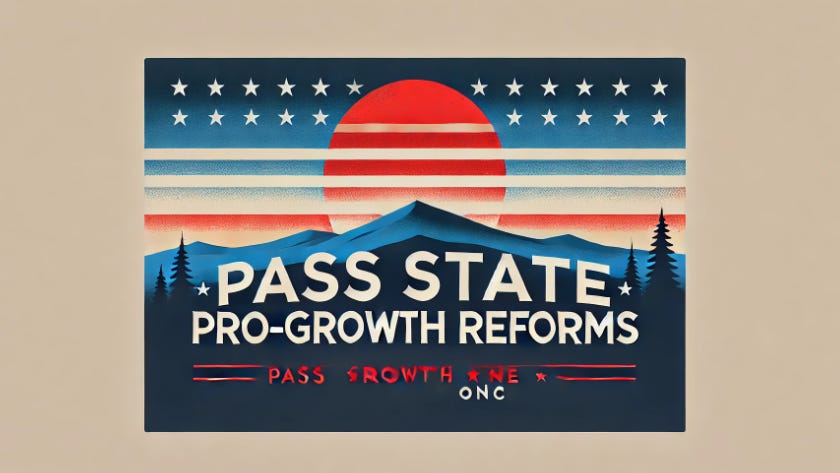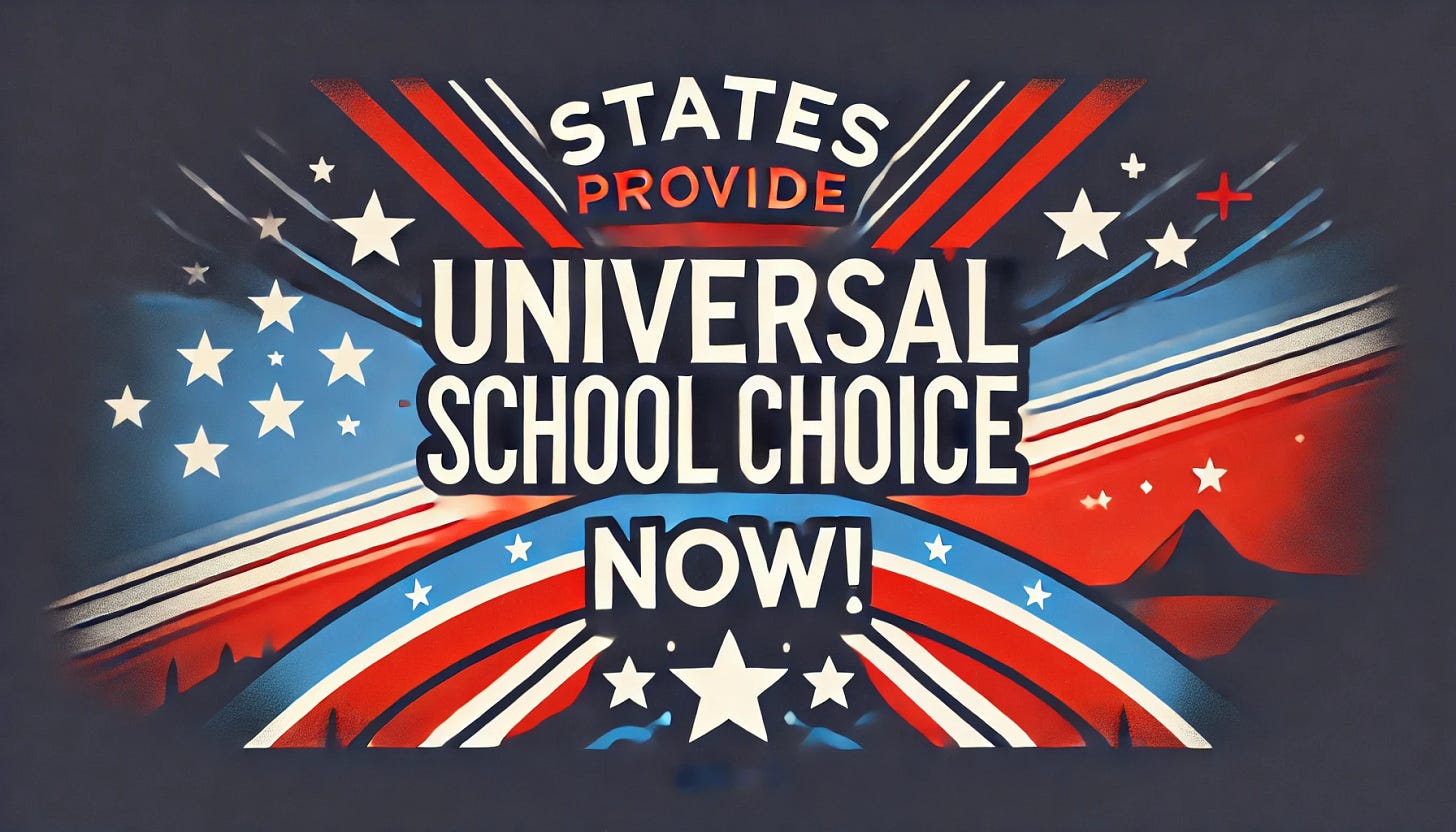319. Special Edition: State and Local Policy Guide | This Week's Economy Ep. 89
How State and Local Policymakers Can Let People Prosper
Hello Friends!
In January, many state legislatures will begin their sessions. In this special edition of This Week’s Economy show, I share state and local policies that will equip state leaders to help boost their economies and help their citizens prosper. I will outline three solutions that I think have the greatest capacity to let people prosper where they reside. As a thank you, Substack subscribers can download my complimentary Let People Prosper Policy Agenda. Watch this week’s episode on YouTube below, listen to it on Apple Podcast or Spotify, and visit my website for more information.
LIMIT GOVERNMENT SPENDING
Situation:
Many states are facing fiscal crises driven by unsustainable spending habits. States need to adopt more sustainable budgeting practices or risk higher taxes that stifle private sector growth. If federal and state governments had limited spending growth to the combined rate of population growth plus inflation over the past decade, American taxpayers could have saved over $2.5 trillion in taxes and debt in 2023 alone. This figure would be even higher if compounded over the entire period and if local governments were included.
My Proposals:
State and Local Spending Limits: States should implement strict spending limits to curb unnecessary growth in state and local government budgets. This will help preserve fiscal responsibility, promote economic growth, and ensure long-term financial stability.
Key Components of Spending Limits: Spending limits should apply across the entire budget to ensure no area of government spending grows unchecked. These limits should be based on the average rate of population growth plus inflation over the previous three years. Any increase above this threshold should require approval by a supermajority vote. The sound policy should also direct budget surpluses toward tax cuts and debt reduction rather than fueling additional spending.
Benefits of Spending Limits: Spending limits protect taxpayers by preventing unchecked government expansion. They promote economic growth by allowing American households and businesses to retain more earnings, invest, and expand. Additionally, spending limits build financial resilience, reducing vulnerability to economic downturns and promoting stability at the state and local levels.
Related:
PASS PRO-GROWTH REFORMS
Situation:
State-level tax cuts and streamlined regulations are key to fostering economic mobility and financial independence. Excessive regulations—such as restrictive labor laws and burdensome occupational licensing—create significant barriers, particularly for marginalized communities, single mothers, minority-owned businesses, and small entrepreneurs.
My Proposals:
Pair Tax Cuts with Spending Restraints: Tax cuts should be paired with disciplined spending controls to avoid future deficits. Lowering taxes allows families and businesses to keep more earnings, but fiscal sustainability requires controlling spending.
Reduce and Reform Regulations: Excessive regulations hinder business growth and job creation. States should prioritize removing unnecessary barriers, particularly in emerging sectors like AI and technology. Regular reviews should eliminate outdated regulations, focusing only on those that serve a clear public safety or health purpose. For example, occupational licensing should be limited to very few professions where public safety is at risk.
Why It Matters: These reforms will increase economic opportunities, promote job creation, and support self-reliance. By reducing regulatory burdens and lowering taxes, states can foster a thriving economy, boost entrepreneurship, and create an environment where individuals and businesses can reach their full potential.
Related:
PROVIDE UNIVERSAL SCHOOL CHOICE
Situation
The current public school system fails many families, particularly those from lower-income households, by limiting access to quality educational options. Education Savings Accounts (ESAs) at the state level would allow families to direct funds to the schools or programs that best meet their children's needs. This empowers parents to choose from public, private, charter, or homeschool options, breaking the cycle of underperforming schools and expanding opportunities for disadvantaged students. ESAs promote educational equity, allowing every child to reach their full potential and contribute to more robust, prosperous communities.
My Proposals:
Students and Families Win: School choice empowers families to select educational options that best fit their children's unique needs, particularly those in lower-income households often stuck in underperforming schools. By expanding access to better educational opportunities, students can build skills, confidence, and a brighter future while fostering greater socioeconomic mobility.
Greater Value for Taxpayers: ESAs use education funding effectively by targeting dollars to programs that meet families' needs. Rather than funding an inefficient system, ESAs make educational spending more impactful, providing better outcomes for students and taxpayers.
States’ Role in School Choice: States have a unique opportunity to lead by implementing universal ESAs, setting an example of how empowering families benefits everyone. By adopting ESAs, states can ensure that education dollars are spent directly on student outcomes rather than bureaucratic systems. Ultimately, states should champion education policies that enhance personal agency and economic opportunity, creating a competitive and thriving educational landscape.
Related:
Don’t forget to get your complimentary guide on all these policies and more.
Thanks for joining me in this episode of "This Week's Economy." For more insights, visit vanceginn.com and get a paid subscription to my Substack newsletter at vanceginn.substack.com today so you receive these insights in your inbox. God bless you, and let people prosper.
Keep reading with a 7-day free trial
Subscribe to Let People Prosper to keep reading this post and get 7 days of free access to the full post archives.






